News & Commentary
Jun 22, 2020
Black Communities Can Not Wait Any Longer. The Time to Divest Is Now.
Gillian Ganesan, Former National Campaign Strategist, American Civil Liberties Union
In t
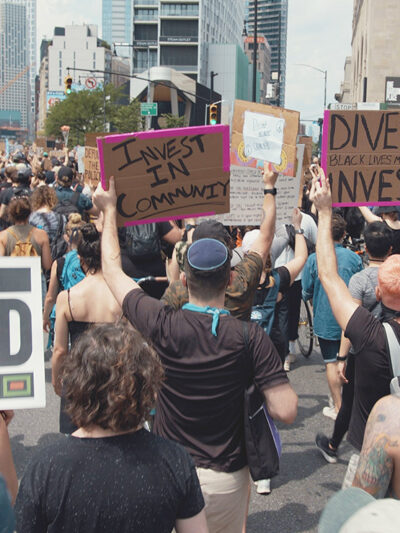
Jun 18, 2020
A Landmark Supreme Court Decision Affirms LGBTQ Rights
It’s been more than 50 years since Black and Brown trans women led the revolutionary Stonewall Riots, fighting back against police brutality and discrimination and launching a movement for equality. This week, we celebrated another incredible landmark in the fight for LGBTQ rights.

Jun 11, 2020
Defunding the Police Will Actually Make Us Safer
Paige Fernandez, Former Policing Policy Advisor, ACLU National Political Advocacy Department
This OpEd

Jun 09, 2020
ACLU of South Carolina Joins Request for UN Investigation of the Escalating Situation of Police Violence and Repression of Protests in South Carolina and across the United States
Yesterday, we joined the families of George Floyd, Breonna Taylor, Michael Brown, and Philando Castile, and over 600 human rights groups in demanding the United Nations Human Rights Council swiftly convene a special session to investigate the escalating situation of police violence and repression of protests in the United States.As we wrote last week, multiple South Carolina law enforcement agencies have responded to non-violent protests about police violence with more violence. We have observed police officers actively pursue peaceful protestors, making arrests and firing projectiles and chemicals.
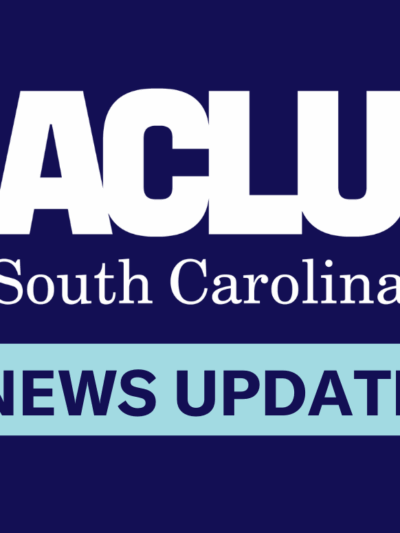
Jun 06, 2020
Police Violence, Curfews, and the Silencing of Protest (against Police Violence) in South Carolina
Since the Minneapolis Police Department murdered George Floyd on May 25, law enforcement in South Carolina and across the nation have responded to non-violent protests against police violence with more violence.
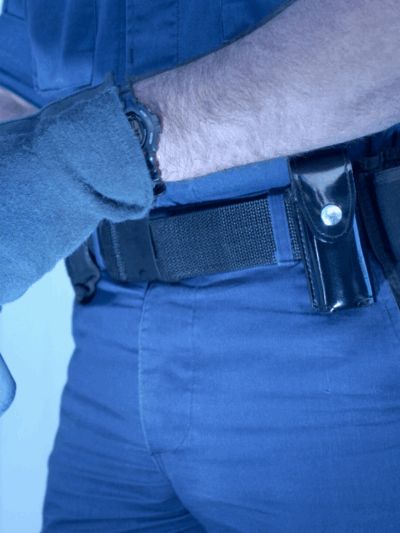
Jun 04, 2020
OP ED: Safe and just communities require fewer police and more services
This op ed was published by the Charleston City Paper on June 4, 2020. On Sunday afternoon, multiple police departments converged in Charleston, S.C. to break up peaceful protests calling for racial justice and an end to police brutality against black people. Their actions made another great case for why we must drastically reduce policing in our society, especially in communities of color that historically have been over-policed. Their response to a non-violent protest about police violence was pure and unnecessary brutality. It was both unbelievable and predictable. Read the full piece here.

Jun 02, 2020
We're Calling on Charleston Area Law Enforcement Leaders to Apologize for Using Excessive Force Against Non-Violent Protestors in Charleston Sunday
We sent a letter today to the leaders of law enforcement agencies whose officers participated in violent actions against non-violent protestors in Charleston on Sunday, May 31. We observed as police officers actively pursued peaceful protestors, making arrests and firing projectiles and chemicals. The brutality we witnessed matches additional complaints we have received from individuals in Charleston and other parts of South Carolina. These actions were clear, dangerous, and counterproductive responses to people exercising their Constitutional rights. Our letter calls for a public apology for officers’ actions, plan for investigating and holding officers who used excessive force accountable, and steps agencies will take to protect and ensure the fundamental right to protest.
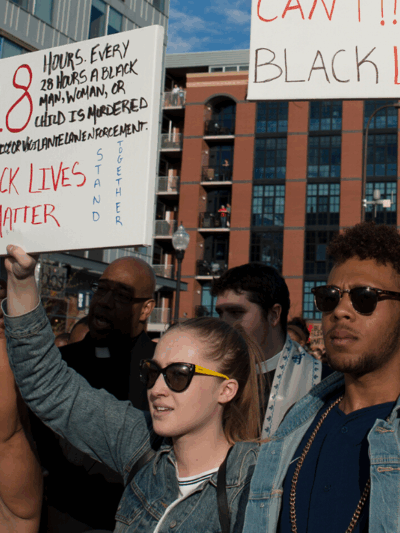
Jun 01, 2020
There is still time to vote by mail in South Carolina's primaries
No one should have to choose between their health and their right to vote. Earlier this month, the South Carolina General Assembly passed legislation allowing all registered voters to vote by mail in the upcoming June 9 primary election. On Monday, a federal court ruled favorably in our lawsuit, blocking a requirement that forced people who vote absentee to obtain a witness signature.
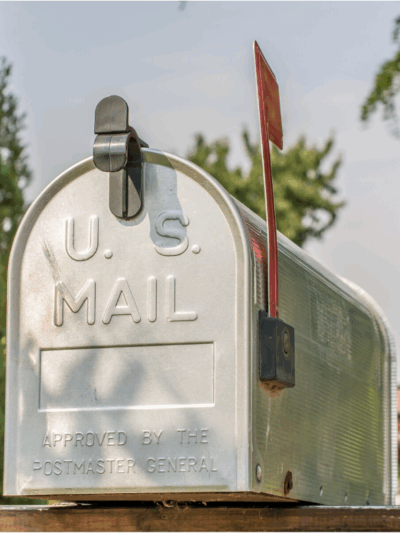
May 22, 2020
We're suing to protect incarcerated people in Spartanburg County
Along with our partners Root & Rebound, South Carolina Appleseed Legal Justice Center and Wyche, P.A., we filed a lawsuit today in the United States District Court challenging Spartanburg County’s failure to protect incarcerated people from risks associated with a COVID-19 outbreak in custodial settings. Protection and Advocacy for People with Disabilities, Inc. (P&A) also joined the lawsuit as a plaintiff on behalf of incarcerated people with disabilities. Defendants named in the suit are Sheriff Chuck Wright and Jail Administrator Allen Freeman.
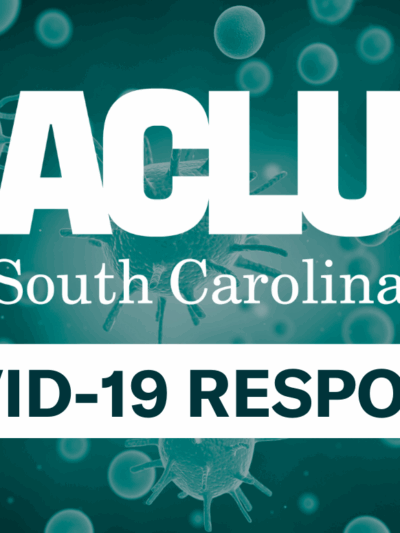
Stay Informed
Sign up to be the first to hear about how to take action.
By completing this form, I agree to receive occasional emails per the terms of the ACLU’s privacy statement.
By completing this form, I agree to receive occasional emails per the terms of the ACLU’s privacy statement.
